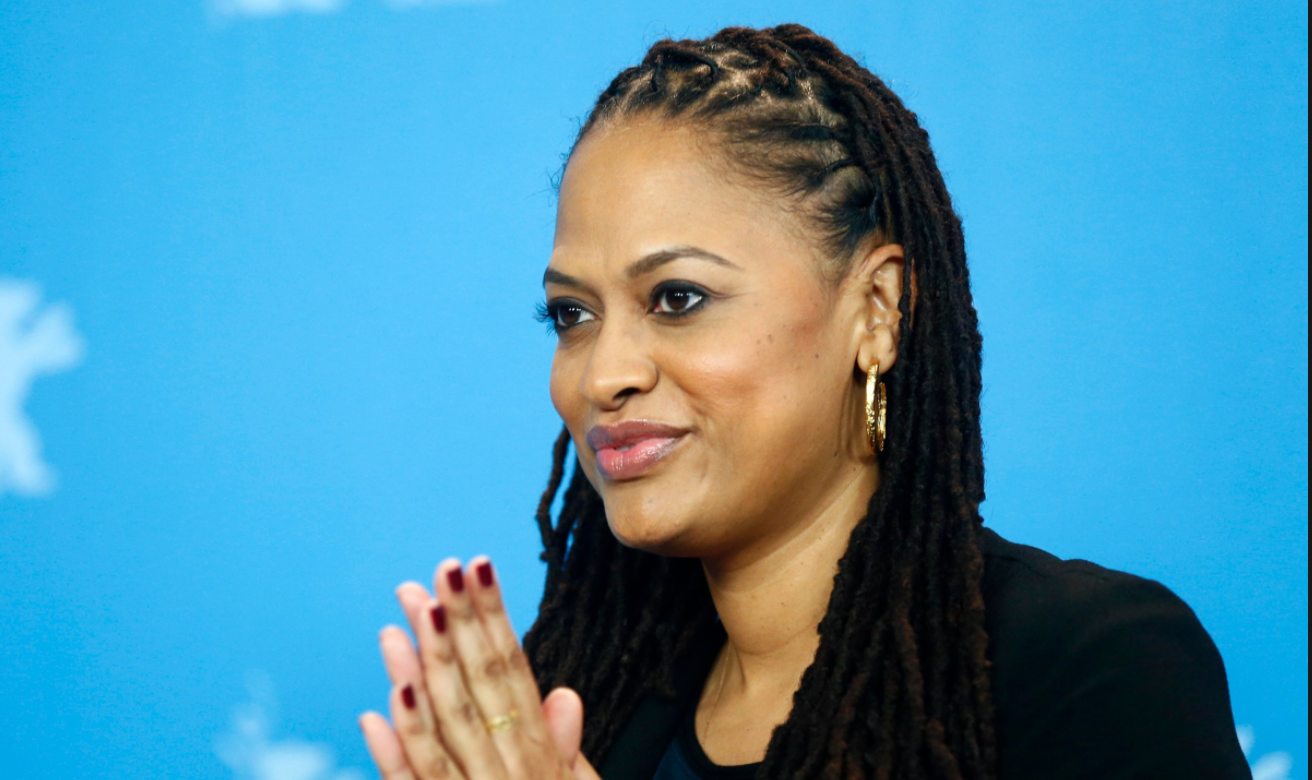
It was announced today that Ava DuVernay will write and direct a five-episode Netflix series about the Central Park jogger case of ’89. I don’t know, man. Ken and Sarah Burns‘ The Central Park Five, a 2012 documentary, was one thing (i.e., not without problems but compelling). But a dramatic miniseries will be a whole ‘nother challenge.
The case was about the assault and rape of Trisha Meili, a female stockbroker, in Manhattan’s Central Park on 4.19.89. Five young black dudes — Anton McCray, Kevin Richardson, Raymond Santana, Kharey Wise and Yusef Salaam — were wrongly prosecuted and falsely imprisoned, only to be exonerated and freed several years later. A flat-out expression of racist hysteria and institutional corruption.
Duvernay is facing two significant problems in terms of her main characters — the five alleged assailants and Meili. If DuVernay fudges, sidesteps or fabricates (as she did with her depiction of Lyndon B. Johnson in Selma), she’s going to run into trouble.
Problem #1: The teenagers who were unjustly prosecuted and imprisoned put their necks in a noose when they stupidly confessed to the crime during police interrogation. They were coerced, yes, but with the assent of parents and/or guardians. Their apparent motive in confessing was that they were tired and wanted to go home.
How do you dramatize this without the audience saying “what the fuck is wrong with these guys…have they ever heard of ‘you can hassle me all you want but I didn’t do it’ or, better yet, ‘I’m not saying anything until I talk to an attorney’?”
Problem #2: The victim’s decision to jog in the vicinity of 102nd street on a dark road inside the park around 10:30 pm was almost as stupid. I lived in New York City in the early ’80s so don’t tell me — what Meili did was flat-out insane. Nobody of any gender or size with a vestige of common sense should’ve jogged in Central Park after dusk back then (and especially in the late ’80s when racial relations were volatile and Manhattan ‘was a completely schizophrenic and divided city’), much less above 96th street and much less above friggin’ 100th street. Everybody knows you don’t tempt fate like that. Any kid who’s read Grimm Fairy Tales knows that wolves lurk in the forest at night.
How do you dramatize Meili’s late-night jogging without the audience thinking “wait…is she an idiot?
In my original Telluride review I alluded to another problem, which was that “the five unjustly convicted youths were not blameless angels. They were part of a roving gang that was ‘wilding‘ that night — harassing and beating the crap out of anyone they happened to encounter. The five say in the film that they were just watching this activity and going ‘wow,’ but I don’t believe in my gut they were just onlookers. It was the metaphor of a sizable gang of black kids hurting victims at random and the inflaming of this by the media and politicians that got the five convicted as much as anything else.”
The five were innocent of assaulting Meili, but if DuVernay tries to portray them as blameless lambs in terms of the “wilding” that happened before, she’ll run into some pushback.
I wrote four or five articles about The Central Park Five between 2012 and ’14 — here they are. In the below video (an interview I did with Stephen Holt at the beginning of the 2012 Toronto Film Festival) I discuss the Central Park Five doc — starts around the four-minute mark:












